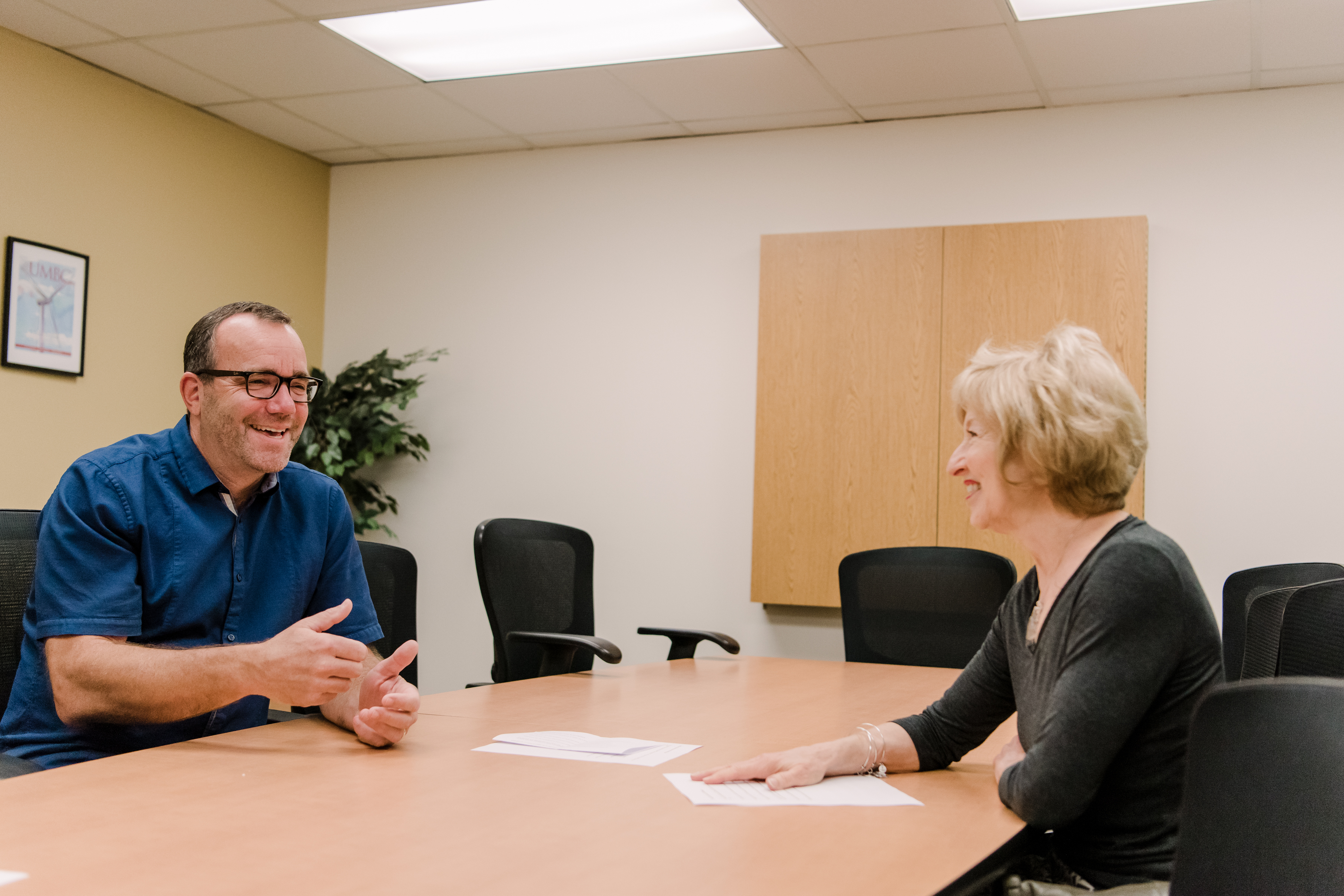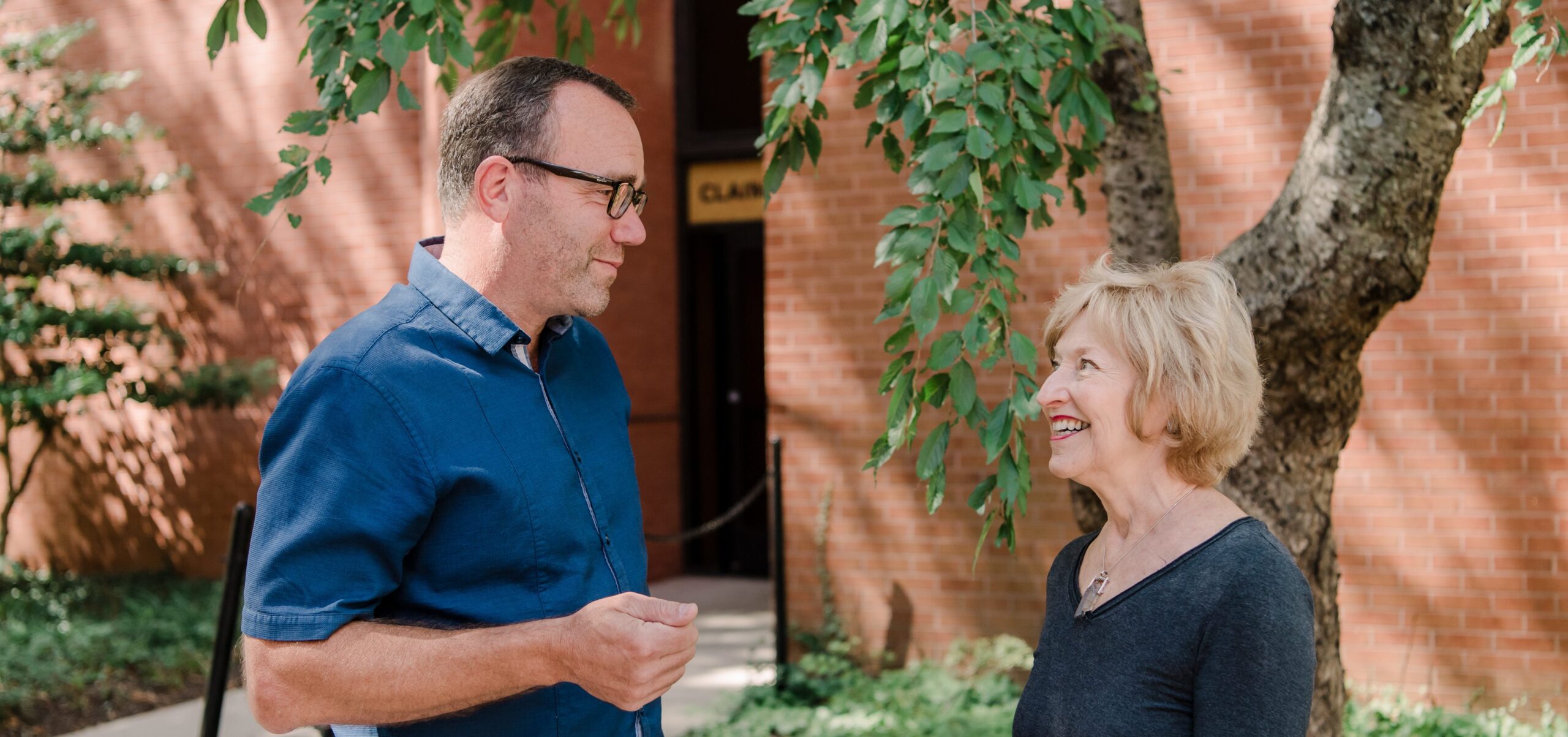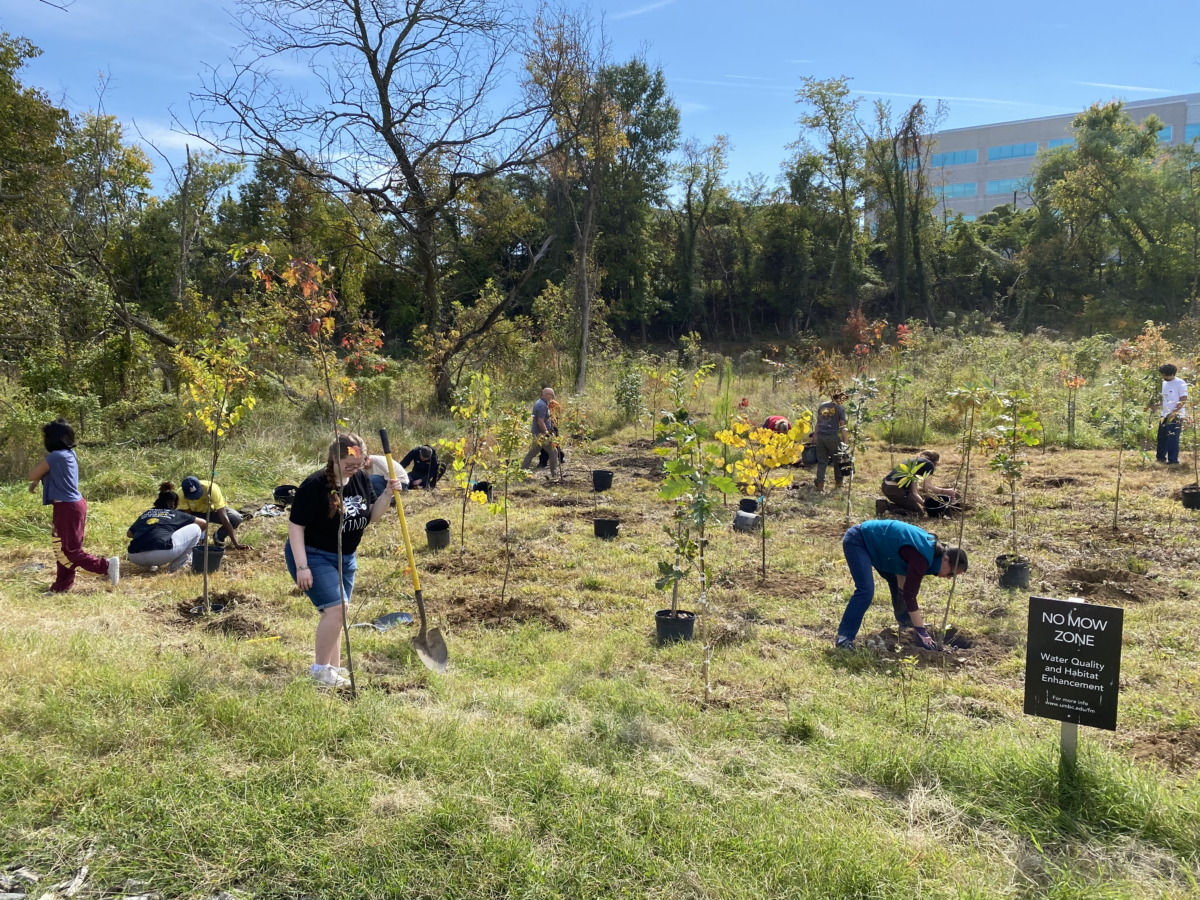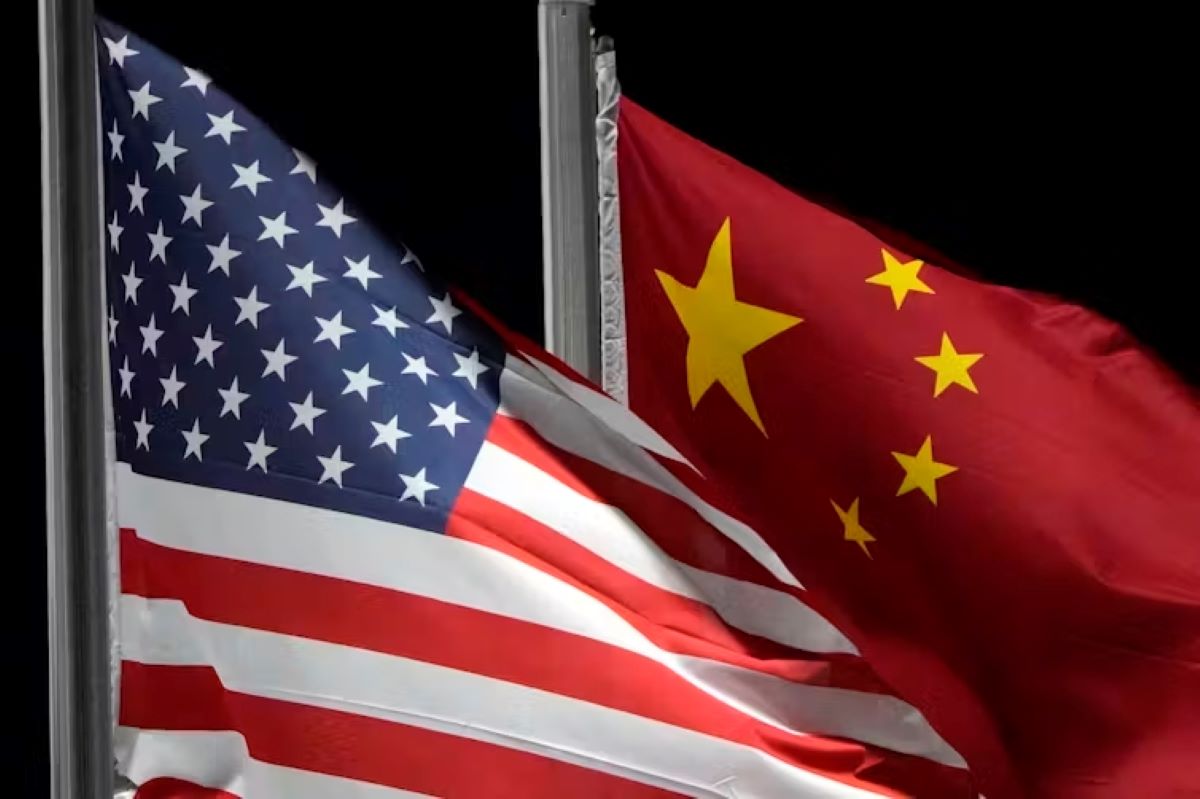Co-founder and Chairman of the Board of Bart & Associates, Paul Mangus ’86, information systems management, has been integral to developing some of the United States’ most critical homeland security systems created over the last 20 years. Winner of the 2019 Outstanding Alumni of the Year Award for Engineering and Information Technology, Mangus came to campus to sit down and chat with UMBC’s director of the Alex. Brown Center for Entrepreneurship, Vivian Armor ’73, American studies.
Vivian Armor: It’s been a while since you graduated from UMBC, but it’s been longer for me. What was it like then, for you as a student?
Paul Mangus: I initially went to community college because I couldn’t get into any colleges because my grades were really bad. I’m dyslexic, so education was very hard for me.
VA: That seems to be common for entrepreneurs.
PM: But when I got into this campus atmosphere, I just flourished. For some odd reason, classwork became a lot easier for me. Maybe because it wasn’t as structured as it was in school, where you had set assignments and set timeframes you had to get things done in, which is very difficult for dyslexic people. So then, I started flourishing.
VA: What about the IT program caught your attention?
PM: I initially wanted to be an accountant because I like numbers. I went to my first accounting class and I just got super, super bored. So then, that’s when I discovered computers and IT, and changed my degree into information systems.

The IT department was a very small group of people, and we got to know each other very quickly. We got along, although there was some competition there. The only computers available to us were in a lab that closed at night, and we’d have to sign up for time slots in advance. I got to know the guy that managed the room, and he would allow me to spend the night in the lab, but the room would be locked after 11 p.m. I would go in with food and whatever I needed, and he would shut me in there to do my work. Then, at 7 in the morning, the door would open and there would be a line of students to get in, and I’d be walking out with all my assignments done.
They got back at me because at the time, you also had to use computer cards—it was before you had CRTs or computers and keyboards—you did everything on these cards. So, when the other students found out that I was going into the computer lab at night, they would chase me down the hallway and tackle me, then 1,000 cards would go everywhere.
VA: Did you always know you’d probably start a company, or not? Was this a surprise even to you?
PM: It was a surprise to me. I guess you could call me an entrepreneur when I was young because I used to always walk around the neighborhood and knock on doors, ask to mow your grass, rake your leaves, shovel your sidewalks, and all that other stuff. I’d collect bottles, turn them in for five cents apiece.
But I never had a vision of running my own company until I started working and realized I’d be better suited to create something of my own.
VA: Then, that major opportunity after 9/11, an unfortunate opportunity.
PM: I so happened to be right where I needed to be after 9/11. Out of tragedy comes opportunities, I guess. It was something we got involved in because the systems our company had built were for identifying drug trafficking, child pornography, people trying to smuggle drugs and people into the United States. After 9/11, the government asked if we had systems in place to monitor people. It so happened that, yes, we had built the system already.
VA: I think of you every time I go through an airport.
PM: It was a great experience for me. I traveled the world, meeting with various airlines on developing interfaces with their systems so we could communicate with the reservation systems to gather all the data we needed. We ingest all of that and do the analytics.

VA: I’ve met a lot of entrepreneurs and they just have this incredible confidence, and they do whatever it takes to start. They take these risks, like starting out with lots of credit card debt. You were one of those entrepreneurs. What gave you the confidence to do that?
PM: I was single. I didn’t have any responsibilities, which is huge. I don’t know if I’d do it again, but I have a wonderful wife and she supports me.
The confidence and credit cards were a necessity because when we started the company, the bank refused to give us a loan. The bank officer wanted to see hard assets, like “Where are your trucks? Where’s your manufacturing equipment?” We didn’t have any of that.
Cash flow is huge. So, out of necessity, one day I was at home and I got an envelope in the mail, and it was the classic thing: open up a credit card today and you could write a check for $3,000. So, I called up my partner, and I was like, “Hey, are you getting these in the mail?” He goes, “Yes.” I was like, “Game on.”
VA: Obviously, it paid off, but it’s a risk.
PM: It paid off because it allowed us to hire people. But, it’s a huge risk, yes.
VA: Paul, I know any time I’ve asked you to do anything, you’ve said yes. You’ve been a speaker for us in a speaker series. You’ve been a judge in our competition. You’ve been a mentor to our teams. You’ve worked with the digital students. Any time I ask you, and you’re incredibly busy, you say yes. What got you involved as an alum with UMBC?
PM: It is because of you.
VA: Is that right?
PM: When I became successful financially, I started donating back. Then, you sent me a polite email saying, “Hey, would you like a tour of the campus?” You brought me on a tour and we ate lunch. You said your goodbye and that was it. I was like, that’s nice.
My wife and I have a pay-it-forward attitude. We’ve been blessed with success. I’m not driven by money, so that was never in the equation—that I want to be a rich man, and be wealthy, and show off wealth—that was never a driving factor.
VA: One of the many things I like about you.
PM: Money actually makes us uncomfortable in some ways. There’s a lot of responsibility associated with money. So, we decided we need to start giving back to the community.
VA: Things obviously have changed so much for entrepreneurs. What would be your advice for students here, who have that entrepreneurial spirit?
PM: Our lives are too short to learn everything we need to learn, so that’s why universities are here, so we can jump-start our understanding by coming to institutions like this to learn from other people’s experience. When you’re an entrepreneur, you leave college, you’re still learning, and you need to find, constantly seeking out those mentors.
It’s constantly maintaining a Rolodex of people that you meet. I wish I had done that earlier in my career because there’s a lot of wonderful people I’ve met early in my career that I’ve lost touch with that would have really helped me to be more successful.
The mentors and the relationships with other professionals… it allows all that noise to dissipate, and you can really focus on why you got into business in the first place.
*****
Learn more about the 2019 Alumni Award winners and register to attend the October 2 ceremony.
Header image by Marlayna Demond ’11.




